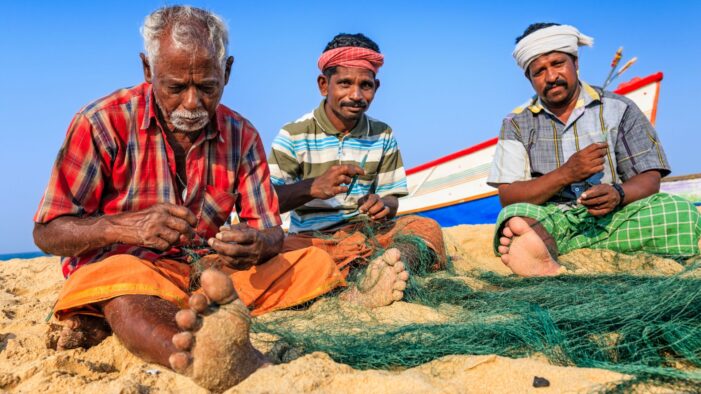ICTpost Media Action
The fisheries industry in India is a lifeline for over 30 million grassroots-level fishermen, with many more depending on it for their livelihood. For a significant portion of the country’s economically disadvantaged population, the sector plays a crucial role in providing income, supporting poverty alleviation, improving nutrition, and fostering economic growth. However, the industry faces ongoing challenges that need to be addressed to sustain its essential contribution to the economy.
One initiative that promises to revitalize the fisheries sector is the National Fisheries Digital Platform (NFDP). This platform provides digital identities to fishermen, women in the industry, fish farmers, and auxiliary workers, enabling easier access to government schemes and welfare programs. Individuals can register at their nearest Common Service Center (CSC), which ensures they are formally recognized and eligible for financial and technical support.
A particularly important aspect of the fisheries industry is the critical role played by women, especially in post-harvest operations. Women are estimated to carry out 80-90% of tasks such as sorting, grading, and selling the fish after it is brought ashore. Despite their indispensable contributions to the fisheries value chain, their work often goes unnoticed, leaving them vulnerable to economic instability. The Pradhan Mantri Matsya Sampada Yojana (PMMSY) aims to address this by providing infrastructure, training, and financial support to women, empowering them to take on an even greater role in the sector’s growth.
K. Neelu, Managing Editor of ICTpost, emphasizes the importance of digital tools in empowering the fisheries sector, stating: “The fisheries sector faces numerous challenges. Fishing is largely informal and unorganized, and there is little information on who is doing what. Additionally, it is difficult to reduce risks and improve access to institutional credit. Moreover, small and micro enterprises selling fish struggle with maintaining safety and quality standards. By registering people in the fishing business through the NFDP platform and CSCs, the sector can become more organized, strengthening the domestic market and empowering women.”
Neelu further notes that the initiative is expected to create about 200,000 new jobs, with 75,000 roles for women, particularly in the micro and small enterprise value chain.
The integration of the NFDP and CSCs is key to the sector’s growth, making vital information and services more accessible. This will help the industry become more efficient, organized, and sustainable, benefiting millions. These efforts align with India’s vision of inclusive growth, ensuring all segments of society share in the nation’s economic progress.
As the fisheries industry evolves, tackling issues such as overfishing, environmental sustainability, and market access will be crucial. However, with initiatives like the NFDP and PMMSY, India’s fisheries sector is well-equipped to meet these challenges and secure long-term prosperity for the millions who depend on it.
editor@ictpost.com








